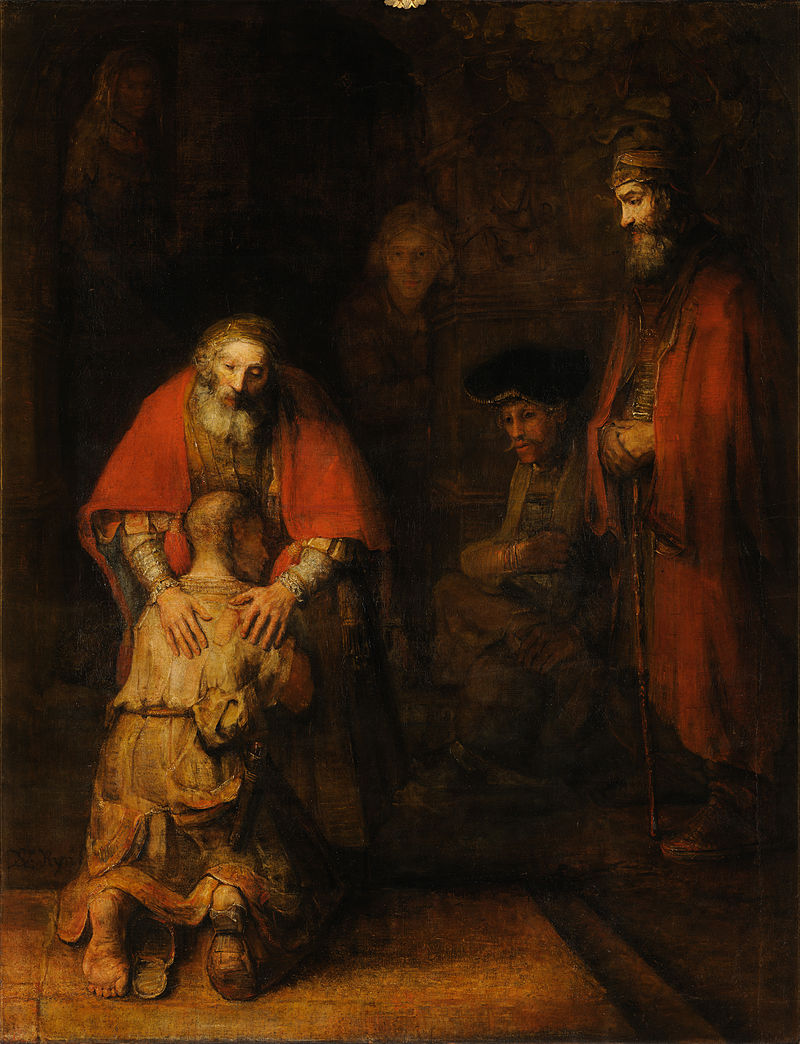Q. Peace be with you. I read your response to the question, “Why did Jesus say he wasn’t going to the Festival of Tabernacles and then go?” Your justification didn’t satisfy me. Why should Jesus’ talk be so unclear that people like you need to explain to us? The word of God should be so easy that everybody can understand.
Peace be with you as well. Actually, people who consider the Bible to be the word of God have always believed and understood that it has more than one level of meaning. On the surface, it presents stories, songs, dreams, etc. that are interesting and instructive about life on earth in their own right. That’s why even children can enjoy the Bible starting from a young age. But as we grow and mature mentally, emotionally, and spiritually, we come to recognize that beneath the surface there’s another level of meaning that teaches us about God, especially in his relationship to people.
The parables that Jesus told are an excellent example of this. The Parable of the Prodigal Son, for example, is on its surface a memorable story about character development and family relationships. We are moved when we hear about how the younger son grew from being a reckless and ungrateful youth who grieved his father to become a mature adult who took responsibility for his actions and came to appreciate all he had in his family. We admire and want to emulate the example of the father who generously forgave and restored his penitent son. And we take warning from the older brother’s failure to forgive. All of this teaches us important lessons about life on earth.
But when we also discern the deeper spiritual meaning of this story, we are even more moved to realize that God is like the father in the story, who kept watching for his wayward son and ran to meet him “while he was still a long way off.” We understand that God is eager to forgive and restore us and that God is just waiting for us to begin to turn around before he rushes to greet us. We realize that in terms of our own relationship with God, we need to be like the younger son, who confessed, “Father, I have sinned against heaven and against you.” We should not be like the older brother who refused to forgive and so remained estranged.
Perhaps it is easier to see how Jesus’ parables, as teaching vehicles, likely have such deeper meanings. It’s harder to recognize that the narratives of Jesus’ actual words and actions also have such meanings. But they do, and we should look for a deeper significance whenever we come across something that’s puzzling or distressing. That’s a sign that something more is happening than meets the eye.
So—to return to the example you asked about—when Jesus’ brothers encourage him to go to the Feast of Tabernacles, and he replies, “I am not going up to this festival, because my time has not yet fully come,” but then he goes up to the festival anyway, we shouldn’t simply conclude, “Jesus must have lied.” Instead, we should ask, “Did Jesus mean something different from what we first understood?” If we read the whole gospel thoughtfully and reflect on it, we should recognize the significance of the phrases “go up” and “my time” throughout the work. We will then realize that, as John tells us on another occasion when Jesus also talked about being “lifted up,” he gave this response to his brothers “to show the kind of death he was going to die.” There was a deeper meaning behind his words.
The multiple layers of meaning in the Bible make it a book that we can read and study throughout our lives and continue to get new insights from. It is truly so simple that a child can read it and hear God’s invitation to salvation. But it is also so profound that even after a lifetime of study the most learned scholar must confess, as the psalmist says of God’s awareness of everything about him, “Such knowledge is too wonderful for me, it is too lofty for me to attain.” This shouldn’t discourage us from reading and studying the Bible; it should only make us more eager to discover more of its hidden treasures.

